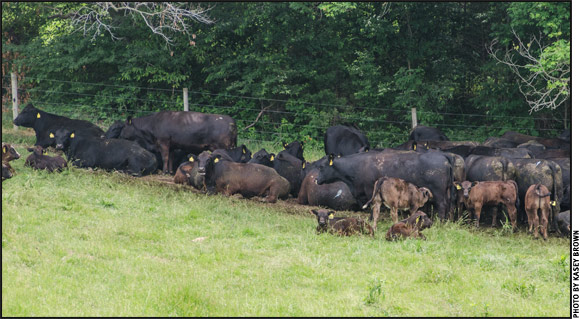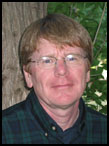MANAGEMENT...

Culling Your Beef Cow Herd
Just as wise selection of bulls and replacement heifers is central to improving your herd, selecting which cows to cull is also important to herd improvement.
We most often think of selection in terms of adding to the group — positive selection; however, it also works in the negative. CHAPS (Cow Herd Appraisal Performance Software) data from North Dakota State University Extension show an average beef cow cull rate of 13.2%, or six or seven of every 50 cows. Choosing those animals wisely can help improve your herd.
Michigan State University (MSU) Extension beef educators spoke about choosing cull cows wisely at their 2017 Cow-Calf Management Seminar hosted throughout the state. There are really two types of culls for beef producers. In the dairy industry, they are referred to as involuntary culls and voluntary culls. From a management standpoint, it is beneficial to reduce involuntary culls, thus increasing more of the culls that you choose in order to improve the herd. Read more.
25 Years of NBQA
Audit information shows patterns of consistency, areas to improve.
“Without data, you’re just another person with an opinion.”
A pioneer in the world of business process reengineering, W. Edwards Deming conceptualized the notion. The National Beef Quality Audits (NBQA) and the National Market Cow and Bull Beef Quality Audit (NMCBBQA) applied it.
Attendees of the 2017 Cattle Industry Convention & NCBA Trade Show in Nashville, Tenn., Feb. 1-3 had the chance to take in an overview. That data and implications for what’s to come from new research were presented during the Cattlemen’s College session, “25 Years of National Beef Quality Audit Impact.” Read more.
Tips for Working with the BLM and Forest Service
Improve relations with your range conservationist. Together, you can improve the range.
In today’s advocate-centric ag community, the phrase, “If we don’t tell our story, who will?” is one social media post away from becoming cliché. John Reese, a Bureau of Land Management (BLM) range conservationist, says that philosophy rings true for BLM and Forest Service personnel.
Reese addressed a group of young ranchers at the Idaho Farm Bureau Young Farmers and Ranchers Leadership Conference Jan. 27, 2017.
“We need to encourage our brothers, our sisters, our kids to go get educated and go to work for [the government, BLM or Forest Service]. If they don’t work for the NRCS or the BLM or the Forest Service, then who does?” he posed. Read more.
After the Soil Sample
Agronomist offers tips for using manure or compost on fields.
“For some reason, the world outside of agriculture thinks that the farmer just goes out and puts on a pesticide whenever he wants,” called out Cameron Brower, a certified crop advisor for Stukenholtz Laboratory Inc., at the 2017 Idaho Farm Bureau Young Farmers and Ranchers Leadership Conference in January 2017.
“We know that’s completely wrong! They don’t realize that you’re running a business, and there’s a cost to everything, so we’ve got to do a better job of teaching the world what you really do and that you are good stewards of the land,” he continued. Read more.

Kris Ringwall
Beef Talk
Cattle should be sold if they routinely challenge the producer for space, are very aggressive or are easily put in a defensive mode.
I apologize if the following words are too harsh, but they are true.
Unfortunately, some know the feeling all too well. The beef business has risks, and one risk is bad-tempered cows — those cows that want to kill you.
Most cows respect their caregivers and have only goodwill, but for those of a different temperament, get them out of the pen. You should have no room in the pen for killer cows.
While calving time brings out maternal behaviors, acceptable behaviors always must include respect for the producer, the primary caregiver. Never, never assume a cow will not harm the very person who cares for her — you. No exceptions. Read more.
New Products
Industry affiliates provide a wide array of products and services to assist you on the farm and ranch. Here’s an assortment of new products to hit the market recently.
- Low-dose horn fly and lice control
- Simple, safe blood collection
- Cordless detachable-blade clipper
- Enhanced sprayer
- High-performance mid-range tractors
Angus Advisor
Click here for May herd management tips from cattle experts across the nation. Advice separated by region.
[Click here to go to the top of the page.]






